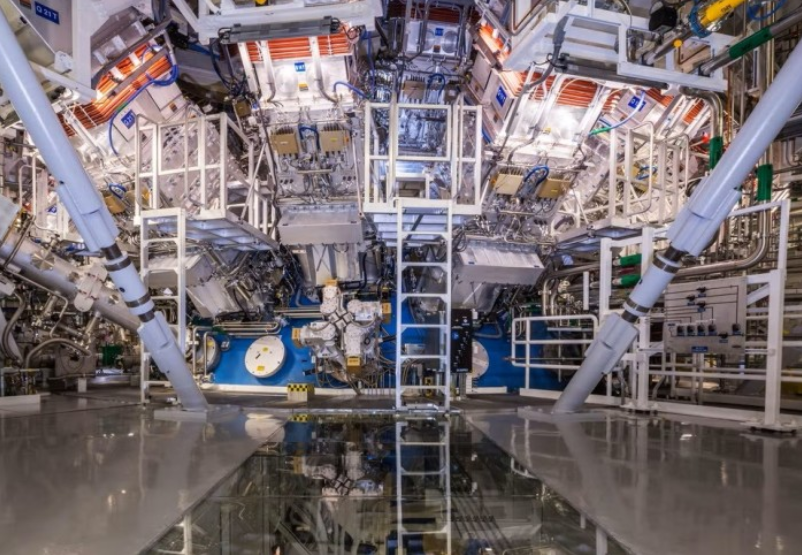Revolutionizing the Energy Industry: The Impact of Smart Grids and Lithium Batteries
In recent years, there has been a growing concern about the need to transition towards cleaner and more sustainable sources of energy. With the increasing demand for electricity and the urgency to reduce greenhouse gas emissions, the energy industry has been forced to explore new technologies and innovations. Two of the most promising advancements that are revolutionizing the energy industry are smart grids and lithium batteries.
Smart grids are a modernized version of the traditional electrical grid system. They incorporate advanced communication and automation technologies to optimize the generation, distribution, and consumption of electricity. By utilizing a network of sensors, meters, and control devices, smart grids enable real-time monitoring and management of energy flow. This allows for better coordination between power plants, renewable energy sources, and consumers, resulting in improved efficiency and reliability.
One of the key benefits of smart grids is their ability to integrate renewable energy sources into the grid. Traditional grids were designed to accommodate centralized power plants that rely on fossil fuels. However, with the increasing adoption of solar and wind energy, the generation of electricity is becoming more decentralized. Smart grids are capable of handling the variability and intermittency of renewable energy sources by dynamically adjusting the distribution and consumption of electricity. This not only reduces reliance on fossil fuels but also promotes the use of clean energy.
Lithium batteries, on the other hand, have emerged as a game-changer in the energy storage sector. Lithium-ion batteries, in particular, have gained popularity due to their high energy density, long cycle life, and fast charging capabilities. These batteries are widely used in portable electronic devices, electric vehicles, and now, in grid-scale energy storage systems.
The integration of lithium batteries into the energy industry has several advantages. Firstly, it enables better utilization of renewable energy. Energy generated from solar panels or wind turbines can be stored in lithium batteries during periods of low demand and released during peak hours. This reduces the need for backup power plants fueled by fossil fuels and allows for a more efficient use of clean energy.
Secondly, lithium batteries enhance grid stability and reliability. They provide a reliable source of power during blackouts or grid failures, ensuring uninterrupted electricity supply to critical infrastructure and residential areas. Additionally, they help balance the supply and demand of electricity, reducing the risk of power outages and grid instability.
Furthermore, lithium batteries facilitate the electrification of transportation. As the world moves towards a greener future, the demand for electric vehicles is increasing rapidly. Lithium batteries enable long-range driving, fast charging, and improved performance of electric vehicles, making them a viable alternative to traditional internal combustion engine vehicles. This not only reduces greenhouse gas emissions but also decreases our dependence on fossil fuels.
Despite these numerous benefits, there are still challenges that need to be addressed for the widespread adoption of smart grids and lithium batteries. One major hurdle is the cost. While the prices of lithium batteries have been decreasing steadily, they still remain relatively expensive compared to traditional energy storage options. Additionally, the installation and infrastructure costs associated with smart grids can be significant.

Another challenge is the need for regulations and policies that support the integration of these technologies. Governments and regulatory bodies need to incentivize the deployment of smart grids and lithium batteries through financial incentives and favorable policies. This will encourage investment in research and development, promote innovation, and accelerate the transition towards a cleaner and more sustainable energy future.
In conclusion, smart grids and lithium batteries are revolutionizing the energy industry by enabling the integration of renewable energy sources, enhancing grid stability, and promoting the electrification of transportation. While there are challenges to overcome, the potential benefits are significant. With continued advancements in technology, increased investment, and supportive policies, smart grids and lithium batteries have the power to reshape the energy landscape and pave the way towards a more sustainable future.
-
 Are you tired of experiencing a dead battery in your car? Having a reliable starter battery pack can solve this problem for you. A starter battery pack is a portable power bank that can store power and jump-start your car when its battery is dead. It is a time-saving and cost-effective solution for those who frequently experience battery failures. In...Weiterlesen
Are you tired of experiencing a dead battery in your car? Having a reliable starter battery pack can solve this problem for you. A starter battery pack is a portable power bank that can store power and jump-start your car when its battery is dead. It is a time-saving and cost-effective solution for those who frequently experience battery failures. In...Weiterlesen -
 Batteriesulfatierung ist ein häufiges Problem, das bei Blei-Säure-Batterien auftritt, die üblicherweise in verschiedenen Anwendungen wie Autos, Booten, Motorrädern und unterbrechungsfreien Stromversorgungen verwendet werden. Dabei handelt es sich um einen Prozess, bei dem sich auf den Batterieplatten Bleisulfatkristalle bilden, die deren Kapazität und Gesamtleistung verringern. Blei-Säure-Batterien bestehen aus positiven und negativen Platten, die in einen Elektrolyten getaucht sind.Weiterlesen
Batteriesulfatierung ist ein häufiges Problem, das bei Blei-Säure-Batterien auftritt, die üblicherweise in verschiedenen Anwendungen wie Autos, Booten, Motorrädern und unterbrechungsfreien Stromversorgungen verwendet werden. Dabei handelt es sich um einen Prozess, bei dem sich auf den Batterieplatten Bleisulfatkristalle bilden, die deren Kapazität und Gesamtleistung verringern. Blei-Säure-Batterien bestehen aus positiven und negativen Platten, die in einen Elektrolyten getaucht sind.Weiterlesen -
 Off-roading has always been a thrilling activity for adventure enthusiasts. The adrenaline rush and the feeling of conquering tough terrains is unmatched. However, the traditional dirt bikes have always been associated with noise, pollution, and maintenance issues. But now, with the introduction of electric dirt bikes powered by lithium batteries, off-roading is set to undergo a massive transformation. Lithium...Weiterlesen
Off-roading has always been a thrilling activity for adventure enthusiasts. The adrenaline rush and the feeling of conquering tough terrains is unmatched. However, the traditional dirt bikes have always been associated with noise, pollution, and maintenance issues. But now, with the introduction of electric dirt bikes powered by lithium batteries, off-roading is set to undergo a massive transformation. Lithium...Weiterlesen -
 As electric vehicles (EVs) become more prevalent, the demand for high-quality lithium-ion batteries is increasing rapidly. China is a leading manufacturer of lithium batteries, and there are many suppliers to choose from. However, not all lithium battery suppliers are created equal, and finding the best one can be challenging. In this essay, we will discuss the factors to consider when...Weiterlesen
As electric vehicles (EVs) become more prevalent, the demand for high-quality lithium-ion batteries is increasing rapidly. China is a leading manufacturer of lithium batteries, and there are many suppliers to choose from. However, not all lithium battery suppliers are created equal, and finding the best one can be challenging. In this essay, we will discuss the factors to consider when...Weiterlesen -
 With the increasing demand for energy storage solutions, lithium iron phosphate (LiFePO4) batteries have emerged as a popular choice due to their high energy density, long cycle life, and inherent safety features. However, with various manufacturers and suppliers offering LiFePO4 batteries with different specifications and performance metrics, it can be challenging to compare and choose the right battery for a...Weiterlesen
With the increasing demand for energy storage solutions, lithium iron phosphate (LiFePO4) batteries have emerged as a popular choice due to their high energy density, long cycle life, and inherent safety features. However, with various manufacturers and suppliers offering LiFePO4 batteries with different specifications and performance metrics, it can be challenging to compare and choose the right battery for a...Weiterlesen -
 Großhandelslieferanten für LiFePO4-Autobatterien können Ihnen Qualitätsprodukte für Ihren gesamten Energiebedarf liefern. Lithium-Eisenphosphat-Batterien (LiFePO4) erfreuen sich aufgrund ihrer hohen Energiedichte, langen Lebensdauer und Sicherheitsmerkmale zunehmender Beliebtheit bei der Verwendung in Elektrofahrzeugen. Bei der Auswahl eines Großhandelslieferanten für LiFePO4-Autobatterien ist es wichtig, dessen Ruf als Hersteller hochwertiger Batterien zu berücksichtigen.Weiterlesen
Großhandelslieferanten für LiFePO4-Autobatterien können Ihnen Qualitätsprodukte für Ihren gesamten Energiebedarf liefern. Lithium-Eisenphosphat-Batterien (LiFePO4) erfreuen sich aufgrund ihrer hohen Energiedichte, langen Lebensdauer und Sicherheitsmerkmale zunehmender Beliebtheit bei der Verwendung in Elektrofahrzeugen. Bei der Auswahl eines Großhandelslieferanten für LiFePO4-Autobatterien ist es wichtig, dessen Ruf als Hersteller hochwertiger Batterien zu berücksichtigen.Weiterlesen -
 In the wave of energy technology, lithium batteries, with their high energy density, long cycle life and environmental protection characteristics, have become an important support for the development of modern science and technology. The production of lithium batteries is not only an in-depth dialogue between precision technology and material science, but also a vivid interpretation of the concept of green,...Weiterlesen
In the wave of energy technology, lithium batteries, with their high energy density, long cycle life and environmental protection characteristics, have become an important support for the development of modern science and technology. The production of lithium batteries is not only an in-depth dialogue between precision technology and material science, but also a vivid interpretation of the concept of green,...Weiterlesen

